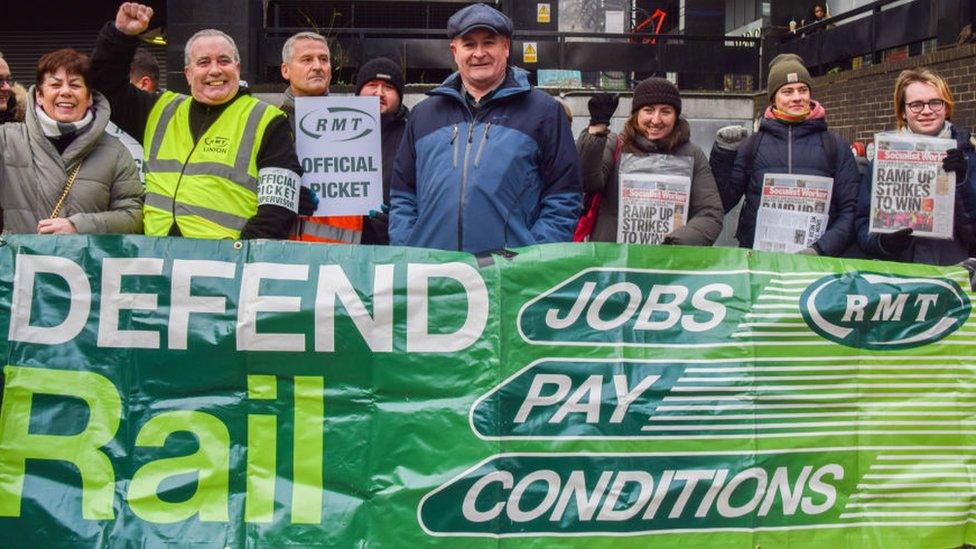Will slowing price rises stop rows over pay?
- Published

With inflation now beginning to fall, the government and employers might be hoping to temper some of the wage demands that have helped fuel the current wave of industrial strife.
That seems unlikely, however.
Overall inflation - the rate at which prices rise - eased slightly last month but the cost of living is still very high and rising at its fastest pace in 40 years. It may only decline slowly.
Also, the government has already said that state pensions will rise in April by more than 10%.
Its bigger argument, however, is about sparking a "wage-price" spiral.
This is when wage rises help force prices up, and the overall problem lasts for years, rather than months.
This happened in the 1970s, but so far there is no evidence of this happening again.
Back then, the surge in wages came before the rise in prices.
Wage growth was already in double digits at the start of the 1970s, whereas price inflation reached that level three years later.
What we have now is very different. Prices are going up very fast because of supply chain issues and the impact of Russia's war in Ukraine on energy supplies.
These are mainly, but not exclusively, imported inflationary shocks from abroad.
The defining characteristic of the current situation is that wages have not risen in line with these very high inflation rates at all.
Double digit rises in inflation, compare to a 6.1% average wage increase in the private sector, or a 2.7% increase for public sector workers.
This is the result of declining union membership and bargaining power.
At the end of the 1970s, more than half of British workers were union members, and now it is a fifth.
The government has brought in laws to make it more difficult for unions to get the necessary support for legal strike action.
Some union negotiators are winning double-digit inflationary pay rises, but these tend to be in sectors with a big union presence, a willingness to move to ballots, and where there are specific labour shortages.
Against this backdrop, Cabinet ministers argue that giving in to union demands will lead to a "signal" to the rest of the economy for spiralling wages, prolonging the inflationary pain.
In countries such as Belgium, where they have systems that automatically raise wages in line with inflation numbers, there is pressure to abandon them by authorities.
In Germany, the practice is frowned upon, and the centre-left government has successfully pushed tax-free one-off payments of Ōé¼3000 (┬Ż2580) as the answer to cost of living pressures.
Union leaders argue that after the Covid pandemic and with public sympathy for cost of living challenges, they will never get a better political backdrop to push for wage rises, to make up for years of stagnation.